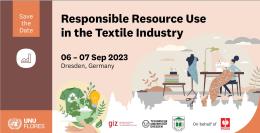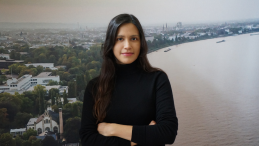The UN (United Nations) secretary’s report “Our Common Agenda” is a vision for future global cooperation, a call for a renewed social contract to address the most pressing challenges of our time and to upgrade the UN to achieve our most urgent collective goals more effectively.
These goals include the sustainable development goals and, more generally, the protection of global common and provision of global public goods. The suggestions made in the report on which reforms and upgrades are needed are a call to building collective intelligence.
This is the broader context, recently described by EU high representative Josep Borell: “Well, it is a world of radical uncertainty. (…) At this pace, the black swan will be the majority. (…) we suffer the consequences of a process that has been lasting for years in which we have decoupled the sources of our prosperity from the sources of our security “1.
In addition to the recent economic and political tensions between the East and West, a more fundamental security risk has been the continuous destruction of ecosystems and biodiversity and the degradation of our ecological life support systems. In fact, one could argue that the current global tensions and crises cannot be seen independently of the fact that we live on a planet shared by all – especially its global commons.
Since the beginning of the great acceleration around 1950, despite the warnings of reports like ‘Our Common Future (1987)’, and ‘Limits to Growth (1972)’, or the UN Conference on Environment and Development in Rio 1992, the world has further transformed into a big world on a small planet. We are reaching planetary boundaries only within which sustainable and peaceful development is possible. Also, the world has become less compartmentalised and more interconnected, which enhances the interlocking crisis – an environmental crisis is linked to an energy crisis, which is linked to a development crisis.
In such a context, where boundaries are crossed, tipping points are reached and risks of cascading effects increase, the UN secretary General in September 2021, projected two scenarios: breakdown or breakthrough. Breakdown will be the default consequence should we choose a ‘business as usual’ strategy and resist transformational change. ‘Breakthrough’ can be achieved if we unlock our enormous potential resource of social capital and collective intelligence.
Collective intelligence is the intelligence which emerges from a group of people thinking and acting together towards common goals. While it has been referred to and applied within the UN system for long, it is more than just participatory decision-making. Digital technologies can support the building of collective intelligence by connecting people in digital spaces and enabling data analysis and processing for complex problems, thereby accelerating the learning process.
Understandably, the critical reader will ask why it should be possible to build collective intelligence in just those uncertain circumstances, and what prevents it from being co-created in the first place. The answer lies in the same uncertainty which defines our current context: Uncertainty, apart from creating fears, also provides the space for redefining the present and future. For example, people in countries with lower uncertainty avoidance scores tend to show lower resistance to change, have less anxiety and be more open to new ideas. While people from high uncertainty avoidance cultures are more formal in their interactions, show resistance to change and fear of the unknown. Uncertainty, therefore, is only a threat if it meets with too much behavioral and institutional inertia and low versatility. The evolution of adaptive versatility is, in fact, essential for survival.
Apart from the genuine belief in the collective human aspiration for peace and prosperity, which is just as powerful, for example, as believing in the value of money and therefore a precondition for an economy to work, there is even more hope on the horizon: digital technologies are powerful tools to unleash the potential of our collective intelligence fully, and they open the door to new digital spaces in which people can meet, communicate, learn, and solve problems together.
Collective intelligence can be created in practice by engaging in participatory or collaborative modelling, supported by digital technologies. Participatory modelling is action and research. It is inclusive of all stakeholders and thereby creates a community of those concerned with solving a problem. Participatory modelling is most suitable for complex problem-solving situations in which facts are uncertain, values are in dispute and decisions urgent.
The process of co-creating knowledge in participatory modelling happens in learning cycles and policies formulated based on the collective learning process have effectively undergone a peer review process. This makes participatory modelling not only a research method but also a socio-technological system for accelerating learning cycles and a governance support mechanism enabling societies to be more versatile and intelligent. VR-based learning systems, serious games and simulations are technologies that can make science learning more accessible and are at the doorstep of the metaverse and may have an even stronger impact on collective intelligence and solving real-world problems together.
It is the time to create economic value by unleashing people’s collective intelligence potential. That is the breakthrough. It can be done by delivering science as a global public good and providing funding for research and development projects which apply participatory modelling and systems thinking, the two pillars of the UNU Institute in Macau.
In the blogs in this series, we will unpack some of the factors impinging on the achievement of collective intelligence within the United Nations, highlight the alignment of collective intelligence with some of the key principles of the United Nations, undertake detailed case studies of how collective intelligence is being operationalised and employed across some of the UN agencies, and share our work on leveraging digital technologies to enhance collective intelligence within the UN system for solving sustainable development challenges.
Suggested citation: Gatzweiler Franz., "Breakthrough: Building Collective Intelligence for Our Common Agenda," UNU Macau (blog), 2022-10-18, https://unu.edu/macau/blog-post/breakthrough-building-collective-intelligence-our-common-agenda.



